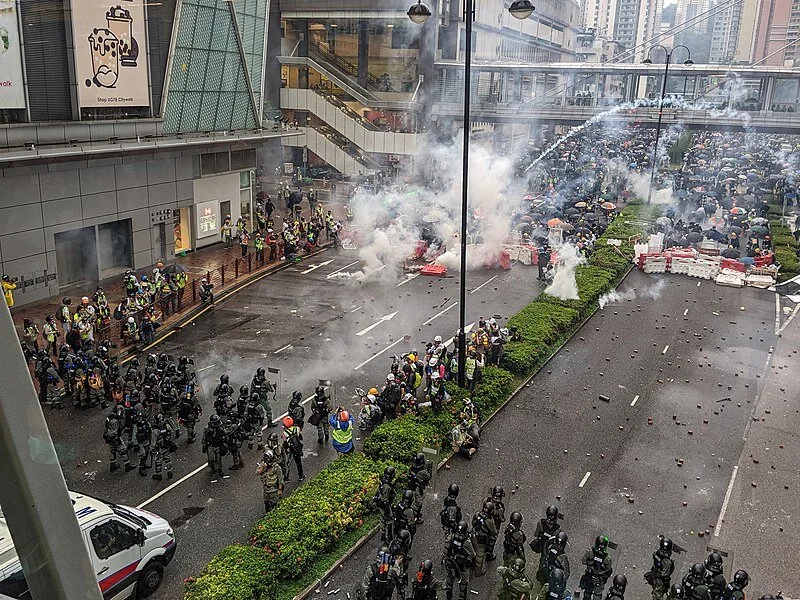Photo courtesy of WikiCommons
The Tseun Wan march on August 25 in protest of the extradition bill.
BY CASEY ROEPKE ’21
One of the largest demonstrations in Hong Kong’s history — with organizers reporting nearly 2 million participants — occurred in response to a piece of extradition legislation introduced in June. In February, Hong Kong’s legislature heard a bill which would permit the extradition of accused criminals to countries without a Hong Kong extradition treaty, including mainland China, according to the New York Times. The same week as the June marches, civilians held a general strike, closing businesses, banks and schools.
The New York Times reported that demonstrators have “staged strikes, surrounded police stations, thrown bricks and lit fires,” but have also been fiercely protective of their privacy and identities. Protesters wore masks and hard hats to evade police identification, and police officers responded by increasing their use of tear gas and other crowd control tactics.
In August, protesters shut down air traffic at Hong Kong International Airport. According to GQ Magazine, “Airport officials obtained an injunction limiting protests to designated zones within the terminal, police used pepper spray and batons to disperse those who remained late Tuesday night.”
Annie Olecki ’21 spent her summer in mainland China. She said that, while everyone had different opinions on Hong Kong’s relationship to China, censorship was restrictive.
“When I asked my professors there about the protests, most of them didn’t even know anything was happening,” Olecki said.
On Sept. 4, Hong Kong’s Chief Executive, Carrie Lam, said that she would withdraw the controversial extradition bill. According to the Wall Street Journal, “The withdrawal of the bill addresses one of five demands from the opposition movement and is a compromise that seems aimed at weakening popular support for the protests, though it isn’t clear if it will reduce the tensions that have gripped the city for three months.”
Time Magazine reported protests at the U.S. consulate in Hong Kong on Sept. 8. Demonstrators called for support from Washington, D.C. in their efforts towards political freedom. Despite the Hong Kong government giving in to one of protesters’s demands, it is unlikely that demonstrations will end any time soon.

